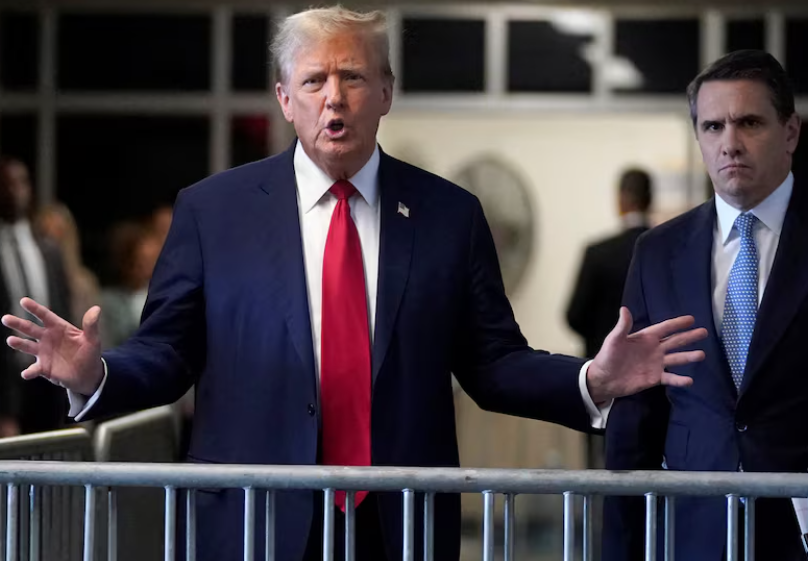A New York judge will decide this week whether to overturn President-elect Donald Trump’s criminal conviction for hush money payments to a porn star, in light of the U.S. Supreme Court’s July ruling on presidential immunity.
Justice Juan Merchan announced he would make his decision by Tuesday. This ruling marks the first of two critical choices he faces following Trump’s Nov. 5 election victory. Merchan must also decide whether to proceed with sentencing Trump on Nov. 26, as scheduled. However, legal experts say sentencing is unlikely before Trump’s Jan. 20 inauguration.
If Merchan rules in Trump’s favor on immunity or delays sentencing, Trump could potentially return to the White House with minimal legal obstacles from the four criminal cases that previously threatened his comeback bid.
Officials at the U.S. Justice Department are currently reviewing how to wind down the two federal criminal cases Special Counsel Jack Smith brought against Trump, as per the department’s longstanding policy against prosecuting a sitting president. In Georgia, a separate case on state criminal charges related to Trump’s attempts to overturn his 2020 election defeat remains uncertain.
Trump, 78, pleaded not guilty in all four cases and denies any wrongdoing. He characterizes the cases as politically motivated actions by Democratic President Joe Biden’s allies to derail his campaign. “It is now abundantly clear that Americans want an immediate end to the weaponization of our justice system,” said Trump campaign spokesperson Steven Cheung on Friday.
In May, Trump became the first U.S. president convicted of a crime when a Manhattan jury found him guilty of falsifying business records to conceal a potential sex scandal ahead of his 2016 presidential win. Trump has vowed to appeal the conviction after sentencing.
His lawyers argue that the Supreme Court’s immunity ruling necessitates a dismissal of the case. The ruling, which emerged from one of Special Counsel Smith’s cases against Trump, states that presidents are immune from prosecution over official acts, and juries cannot consider official acts in trials concerning personal conduct. This decision marked the first recognition of any degree of presidential immunity from prosecution.
According to Trump’s lawyers, prosecutors improperly showed the jury evidence of Trump’s social media posts as president and included testimony from former aides about White House conversations during his 2017-2021 term. Prosecutors from Manhattan District Attorney Alvin Bragg’s office countered that the Supreme Court ruling does not apply here, as the case concerns “wholly unofficial conduct.” The ruling did not extend immunity to unofficial acts.
“Even if the judge finds some of the evidence inadmissible, it would not have changed the jury’s decision, and the court will not dismiss the case on that basis,” said Anna Cominsky, a professor at New York Law School.
If Merchan upholds the conviction, Trump’s lawyers are expected to request a sentencing delay. Trump faces up to four years in prison for his 34 felony counts, though experts believe lesser penalties, such as fines or probation, are more likely than a prison sentence.

